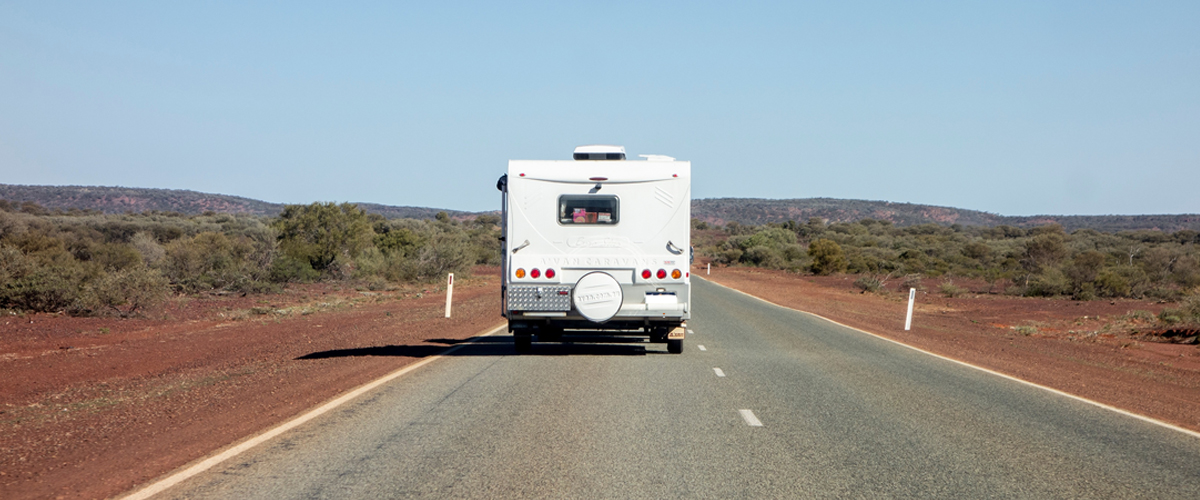Hacks for Boosting Fuel Efficiency when towing
Author: Carasel Date Posted:8 December 2023

Looking for a game plan to help you save your hard-earned cash at the petrol station? Whether you're a seasoned road warrior or a towing novice, finding ways to step up fuel efficiency can help you save money while also going green.
Read on to see how to increase fuel efficiency when you have a trailer, camper, caravan or boat in tow.
How can I increase my fuel economy while towing?
If there’s one thing we know, it’s towing. Check out these twelve tips to amp up your fuel efficiency when towing.
Choose the right vehicle
Picking the right set of wheels for your Aussie towing adventures is a must when you're chasing fuel efficiency.
First off, wrap your head around how to calculate towing capacity. This will help when you're on the lookout for the best car for towing a caravan or trailer.
Avoid the temptation to go for a larger vehicle than necessary because extra size means extra weight.
On the flip side, never skimp on towing capacity. Choose a rig with the towing muscle to match your load for a smoother, safer and more fuel-efficient ride.
Maintain your vehicle and trailer
You've got to be savvy with your wheels to get the most bang for your buck, fuel-wise. Get your engine serviced to keep it running efficiently and guzzle less fuel.
A faulty cooling system can slash your fuel efficiency by causing you to overheat, so make sure it’s working before you hit the road.
Regularly checking and replacing air filters, fuel filters and spark plugs in your tow vehicle can also make a world of difference.
Check your tyre pressure
Under-inflated tyres create more resistance, forcing your engine to work harder and, you guessed it, burning more fuel. Keep tyres properly inflated and check your tyre pressure regularly, especially when towing heavy loads.
Minimise wind resistance
Minimising wind resistance isn't just about aerodynamics; it's a savvy hack to keep your fuel consumption in check.
Streamline your setup – think sleek, not clunky. Lose the unnecessary rooftop cargo boxes and bike racks when they're not in use. Use aerodynamic features such as a streamlined trailer and a bed cover on your ute to keep wind resistance down.
Lighten your load
Evaluate your cargo, ditch the non-essentials and travel lean and mean. Those extra camping chairs or tools that haven't seen the light of day? They're excess baggage that's burning through your fuel budget.
So, before hitting the road, do a thorough inventory, trim down the unnecessary extras and watch your fuel efficiency take off.
Distribute trailer weight evenly
Uneven weight distribution not only affects the stability of your rig but also takes a toll on your fuel efficiency. Enter the hero of the towing game: the weight distribution hitch. This nifty contraption levels the playing field, ensuring your trailer weight is evenly distributed across all wheels.
Maintaining equilibrium reduces the strain on your tow vehicle, allowing it to glide smoothly down the highway with increased fuel efficiency.
Read up on how to properly load your caravan for towing for the best travelling experience.
Plan your route
Planning your route is a strategic fuel efficiency hack often overlooked in the towing playbook. A well-thought-out journey isn't just about the destination; it's about navigating the path of least resistance for your fuel tank.
Consider the topography, anticipate traffic bottlenecks and opt for gentle routes on the accelerator. Hills can be fuel-guzzling foes, so plan accordingly, aiming for smoother inclines and declines.
Avoid idling
Your engine is thirsty even when it's just idling, and that fuel burn can add up, especially when towing.
The hack here is straightforward: when you're parked or waiting, turn off the engine. To help with this, minimise the number of stops you take and, when possible, opt for roads with lower traffic density.
Use engine braking
Instead of relying solely on your brakes, leverage the engine's resistance to slow down on descents.
So how does engine braking work? Simply release the accelerator and downshift to a lower gear, allowing the engine's compression to slow down the vehicle. Engine braking can help preserve fuel and reduce wear on your braking system.
Use overdrive gears
Overdrive gears are like the sweet spot for cruising, reducing the engine's RPM and optimising fuel consumption. When you're on the open road without the need for excessive power, shifting into overdrive lets your engine work smarter, not harder.
Drive smoothly
Gentle acceleration and braking are the unsung heroes of economical towing, preventing unnecessary fuel burn caused by rapid starts and abrupt stops. On flat stretches of terrain, consider engaging cruise control to maintain a constant speed and reduce fuel consumption.
Avoid excessive speed
Reining in your need for speed is a top-tier strategy in the playbook of fuel efficiency when towing. It's a simple equation: the faster you go, the more resistance your rig faces, and subsequently, the more fuel it guzzles. When towing, stick to moderate speeds that harmonise with the flow of traffic and road conditions.
What is the best towing speed for fuel economy?
The best towing speed for fuel efficiency varies depending on things like the road conditions, the type of vehicle and the size and weight of the load.
Generally, maintaining a speed between 80 km/h to 100 km/h will put you in good stead for less pricey fuel bills. But, of course, you should always stick at or below the speed limit.
So if you’re going on a road trip and planning on towing something, remember that vehicles use more fuel when towing, making it all the more important to practice these towing hacks for fuel efficiency.





